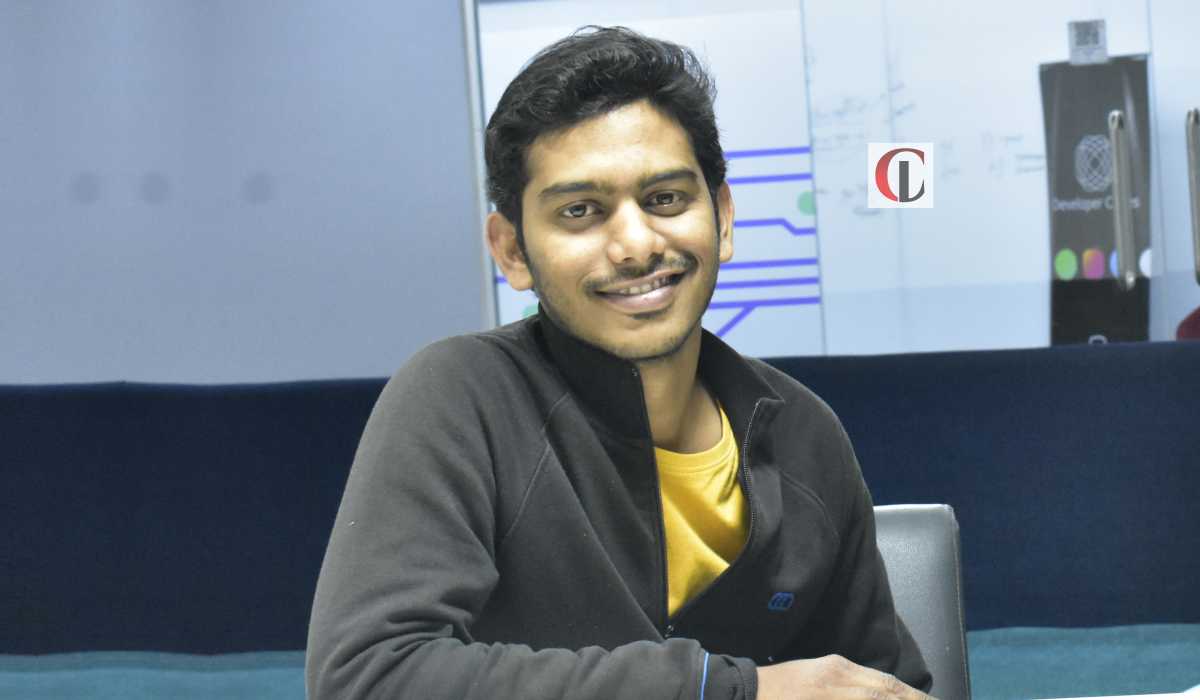Marks can mean a lot of things. It can be a grading mechanism, stain, or systematic flaws that people tend to oversee on a wider perspective. It can leave a mark on people. The Indian education has emphasized on the bookish education and has given an unequal weightage to it over artistic talent for a long me.
In 2019, the team of Coshal Art took the initiative to amalgamate passion for art with skilling. Hear from Ankesh Banjare, the Founder of the company what made him and his team to take this decision in the below given interview:
IS Team: Give us a brief overview of the company, its vision, and its journey since inception
Ankesh: Coshal Art is the platform for traditional handcrafted products that deeply empower the tribal artisans of Chhattisgarh.
We at Coshal, are committed to developing and promoting the beautifully handcrafted creations of tribal artisans and specially-abled craftsmen. Our offerings guarantee to appeal to the senses while also striking a balance between modern and rustic aesthetic sensibility. A plethora of products, ranging from home décor to popular gifts to jewellery, are showcased here and available for sale online. The ancient and intricate Dhokra art (metal casting which uses lost wax casting) and Bamboo Craft owes its uniqueness to the style of work mostly seen in Chhattisgarh.
In 2019, Team Coshal got together and decided to combine a passion for art with skilling. The choice of associating with tribal and specially-abled artisans was made, keeping in mind multiple far-reaching objectives: reviving and keeping alive traditional Indian handicraft and handloom, helping artisans turn lifelong passion to career, and most importantly, giving back to the community while stimulating and driving the local economy!
It makes us extremely happy to say that there has been no turning back. From winning the trust of arsans and customers alike to maturing our products and design to reflect a clean, rusc yet modern look and feel, we have constantly been redefining what Coshal Art means a coming together of beauty and harmony, tradion, and culture. We have also succeeded in creang a culture of inclusiveness and diversity, not only within the workplace but also in the display of our finest products, which are tailor-made to suit your every occasion and need.
IS Team: Please list the popular products/services/solutions that make your company stand out from the competition.
Ankesh: We have a plethora of products, ranging from home décor to popular gifts to jewellery, which is showcased here and available for sale online. The ancient and intricate Dhokra art (metal casting which uses lost wax casting) and Bamboo Cras owes its uniqueness to the style of work mostly seen in Bastar, Chhattisgarh.
Our unique website lets our customers choose a varied range of tribal handicrafts available from Chhattisgarh.
IS Team: Being in a leadership position of your company, what is your opinion on the impact of the current pandemic on the Indian business ecosystem?
Ankesh: Lockdown brought restrictions into the country, which caused a sharp dip in demand for essential and non-essential items. As a result, people have been out of work for the past months. Though the government has granted some respite by relaxing certain lockdown norms, it is still unclear when and how the demand for products will see a rise.
However, we have seen a rise in demand during the festive season but still, it is a long road ahead.
The Export Promotion Council for Handicrafts (EPCH) has cancelled the IHGF – Delhi Fair that was to be held in April this year. Similar fairs attract massive crowds of craft lovers and traders from different parts of the country as well as other countries that help Indian artisans and exporters to earn handsome amounts of money. The cancellation of these fairs can cost millions to this industry. The EPCH estimates that the handicraft sector may lose around 8000-10000 crore rupees during this pandemic. This loss can have a devastating effect on the life of the countless artisans in this country.
This pandemic is becoming a scourge for the craft industry. Many handicraft-based enterprises may not survive this pandemic. Since most artisans depend on enterprises, this may mean that the survival of the artisans may become suspicious.
IS Team: As an experienced leader, according to you, how necessary is it to align one’s business with the latest technological developments?
Ankesh: Technology has become a critical part of almost every department. As a result, businesses have high expectations of their technology investment. New technologies reduce costs, increase security, enhance productivity, or improve workflows and communications.
But despite the important role IT strategy plays, it open ends up as an afterthought. Bolted on to the business strategy, rather than forming an integral part of it.
This is often because IT is seen as a separate entity where technology drives investments, instead of the business’ own aims and objectives.
This divided approach, by both the business as a whole and by IT, is counterproducve. And usually only serves to increase the disconnect between the two.
IS Team: What have you envisioned for your company to sustain its competency in the future?
Ankesh: Planning for the future is challenging, but providing foresight is one of the most important aspects of what senior executives do for an organization. We are artisans favouring and mastering the traditional art forms (handicraft, handloom) which make the world a more colourful and vibrant place. Individuals, learners, and professionals make up our dev, design, and workflow teams. These teams can also be described as a collective of lifelong learners who come together and creatively liberate one another.








